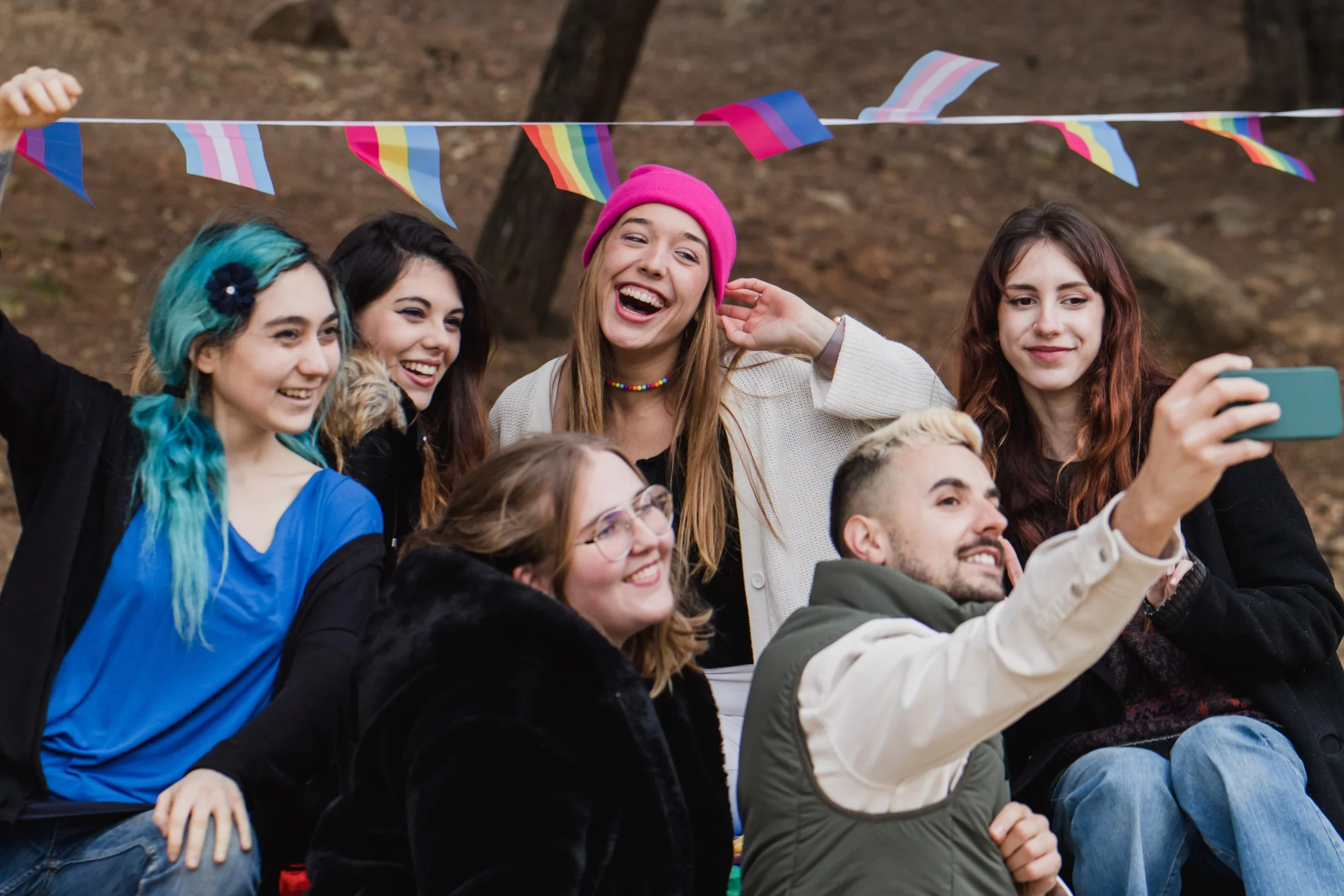Anxiety and Autism: A recipe for distress
Social interactions can provoke anxiety even in the most outgoing, extroverted neurotypical person. But for autistic and neurodiverse people, that anxiety can be crushing, causing life-long struggles and illness. Practicing social skills may ease anxiety before or during social interactions, enhancing meaningful connections.
Services exist to help young children with social interactions in public schools, but once kids hit a certain age, those services drastically decrease. Teens and young adults are left to themselves to navigate increasingly complex social demands, without guidance or support from people who "get it."
We're here to tell you—we get it
As neurodiverse and autistic clinicians, we get what it's like to feel so misunderstood it hurts. We've felt like crawling out of our skin and withdrawing from uncomfortable interactions to a place where we feel safe. We've felt the sting of shame so profoundly we wanted to run and hide when we really need what everyone needs—to feel safe, loved, and have a sense of belonging.
Strategies like withdrawal aren't bad. They serve to protect us and help us survive difficult or painful experiences. But they don't prepare us to navigate the world with confidence and ease. They don't prepare us to communicate better with others, whether neurotypical or neurodivergent. As a result, when we get older—especially in our teen years—many autistic and other neurodiverse people attempt to put on their best "normal," whatever that is. We call this adaptation "masking."
Anxiety and autism cause disconnection—with others and within ourselves
In a world that fears and hates differences, letting our neurodivergence shine can cause peer rejection, social isolation, and exclusion simply because of who we are or how we interpret and process sensory information.
Many autistic people begin to associate authenticity with danger. The world tells us to be ourselves…but only if we're neurotypical. As neurodivergent people, we may start to feel that showing up as our true self is not safe. The coping strategy of fitting in is conformity. In fact, studies show that autistic people are more likely to be victims of bullying and ridicule than non-autistic people.
If you've felt the harsh and painful exclusion of not fitting in, you may have been called names or excluded from activities with peers or family. Or because you did not know how to nurture existing relationships, friendships seemed fleeting and superficial, which adds further pressure to conform.
We ask ourselves, "How do I change myself, so I stick out less?" Maybe that means inhibiting stims (repetitive movements that help us when stressed), forcing ourselves to make prolonged eye contact, or pretending to like football or country music when we can't stand it.
Fawning is an attempt to avoid conflict through people-pleasing. It is another survival strategy for many neurodivergent people. But ultimately, fawning can significantly impact mental health. It can contribute to a weak personal identity, create an inability to set boundaries and say no, or self-abandonment, all of which are a set-up for codependency, neurosis, and a poor mental health outlook.
The antidote to rejection is connection
The fact is, we all need to be liked — but we don't need to be liked by everyone. We need to have friends — but we don't have to be friends with everyone.
We need community and connection with people like us to develop and strengthen our skills in a wide array of social situations. That means we need functional social skills.
Often referred to as soft skills, social skills are actually hard skills. However, they aren't hard to learn in the right environment, with the proper guidance and support.
Whether we like wearing anime t-shirts, going to cosplay events, or getting deep into astrology, social skills help us explore our passions and make meaningful connections. They don't happen automatically. They take practice with supportive people.
Our neuro tribe—people with the same or similar neurodivergent traits— need friendship just as we do. As much as we seek safety and belonging, they seek the same. They need us as much as we need them to have joyful and fulfilling lives.
Social skills as community healthcare
At IRL, we teach functional social skills that actually work, In Real Life, to help autistic and neurodivergent people connect with others with confidence and authenticity. We teach you how to discern when something feels off and how to set healthy, firm boundaries. You can put down the mask and cease fawning. We provide a safe place to explore friendship and learn to deal with conflict with caring adults and peers.
Remember that you deserve to have a handful of real friends—peers who have your back. People who "get you." And remember that healing happens in community. Social skills support is community-based mental health care.
Our coaches provide this by using an evidence-based approach to teach families social skills so that the support continues long after the class is over. We also solve the double empathy problem by treating everyone humanely, respectfully, and with dignity.
So much mental health care is reactive—accessible or sought only after an injury or trauma. At IRL Social Skills, our mission is to foster a proactive approach to mental health that improves individuals' lives while building a more inclusive, accepting, and loving world—one that recognizes the gifts neurodiversity offers.

